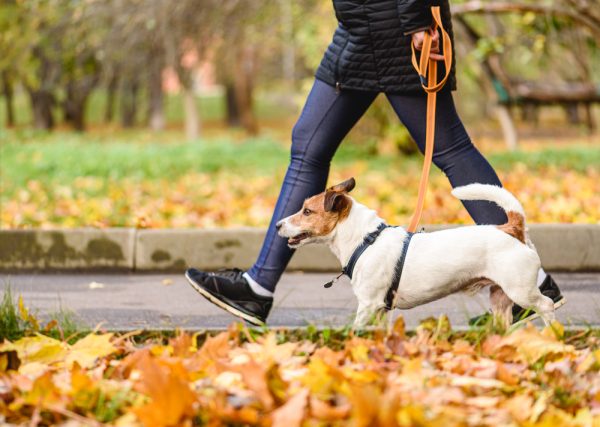In this article
View 2 More +Earthquakes are probably one of the scariest natural disasters known to humankind. We can predict thunderstorms, tornados, and hurricanes. However, the only thing we can say for sure about earthquakes is that they’re unpredictable. Even the most sophisticated scientific instruments and data may only give people little advanced warning.
Anecdotal accounts of animals sensing these events have existed since the Ancient Greeks. They noted unusual observations of snakes, weasels, rats, and centipedes before an earthquake in 373 BC. There have even been some studies stating that a significant number of dogs behave unusually or act anxious before earthquakes. Therefore, it stands to reason that dogs can sense earthquakes in some capacity, but the question is how they do so and to what extent. With that said, there still isn’t enough research on the topic, and there is no conclusive scientific evidence to confirm that dogs can effectively predict earthquake tremors.

The Scientific Evidence We Do Have on Animals Predicting Earthquakes
Perhaps the most compelling evidence of animals sensing earthquakes comes from a 7.3 magnitude earthquake that struck the City of Haicheng on February 4, 1975. Japanese and Chinese authorities and scientists have studied animal behavior as a predictor of these events. After observing abnormal behavior, the government evacuated the city hours before the quake. The earthquake decimated 90% of the town, but the evacuation spared roughly 90,000 lives.
One study examined unusual animal behaviors associated with the earthquake off the Pacific Coast of Tohoku, Japan, on March 11, 2011.1 The team surveyed pet owners for anything they may have noticed. Over 18% of dog owners and more than 16% of cat owners observed unusual behavior, with restlessness occurring the day before in most cases.
The researchers found a correlation between the observations and the epicentral distance. These data suggest dogs and cats can detect precursory signals of an earthquake of varying degrees. It is worth noting that restless behavior is often associated with anxiety, which would undoubtedly explain something unknown and fearful to pets.
Another curious observation involves dairy cows and an earthquake in Japan on April 12, 2013. The scientists monitored the milk yield of the animals at a field station before the event. They noted a significant decrease in yields about 10 days prior to the earthquake. The researchers attributed the behavior to ultra-low-frequency or ULF radiation.

What Dogs May Sense Before an Earthquake
The question remains: What are the animals detecting before earthquakes? Some scientists have posited they are sensing the foreshocks or sounds of cracking rocks. Others point to the electromagnetic signals emitted through the actions of the moving tectonic plates. The hearing range of canines is between 67 and 45,000 Hz, while the figures are 64 and 23,000 Hz in humans. Therefore, our pets can sense things we cannot.
However, it may not be the frequency of sounds that some researchers have suggested. Debate exists about what dogs detect, with some dismissing the hypothesis of air ionization. There is compelling evidence that foreshocks or seismic waves are the signal. P waves, or the small seismic compressional waves, may hold the answer. We can’t feel them, but maybe our pets and other animals can.
The question is whether the unusual behavior is linked to sensing earthquakes or another example of confirmation bias. That’s an individual’s tendency to attribute things to what they already want to believe or prove. For example, your dog barks a lot for no apparent reason, and an earthquake happens soon after that. The fallback position is to interpret your pup’s actions as predictive of the event.
One small study considered behavioral patterns monitored over three 1-month time periods in two dogs, two turkeys, four chickens, a rabbit, five sheep, and six cows. They aimed to determine if the animals detected precursory events and behaved differently without seismic activity. The researchers found spikes in activity 1 to 20 hours before an earthquake, with a link with epicentral distance.
Psychologist Dr. Stanley Coren stumbled upon additional evidence while studying seasonal affective disorder (SAD) in dogs. As luck would have it, he was collecting data from the animals the day before the 6.8 earthquake in the Pacific Northwest struck. Coren observed a 47% increase in activity and a 49% spike in anxiety. He attributed the behavior to the high-pitched sounds of rocks grinding.
The Challenges of Gathering Evidence
Scientists face challenges in answering this question. They’re dealing with retrospective accounts, which may miss vital details. Another glaring factor is earthquakes’ unpredictability. Scientists have conducted studies in areas prone to these events. However, long-term observation is elusive, with relatively small sample sizes.
That makes it difficult to analyze and interpret the data. Researchers try to determine if unusual animal behavior results from earthquakes or if they can’t reliably attribute it to these events. Many things can cause a dog to act strange, including other physical and mental issues. Canines are also well-attuned to their owners’ emotions and actions, which could also affect results.
Nevertheless, anecdotal evidence provides another valuable piece to the puzzle. Current technology can only give us a few seconds to a few minutes to act. If our dogs can warn us sooner, it can give us time to respond and, more importantly, save lives.


Final Thoughts
The takeaway is that evidence suggests our canine companions are sensing something that is out of our range of detection. They may act unusual because the sound or foreshocks are strange and sudden, scaring our pets. Further research is necessary to understand how science can harness this information and develop technology to keep us safe.
Featured Image Credit: Lenkadan, Shutterstock



















